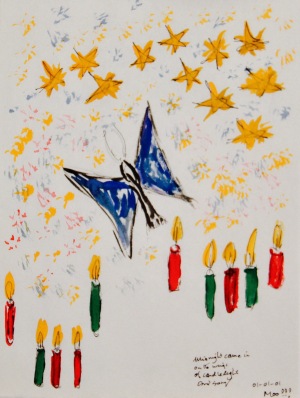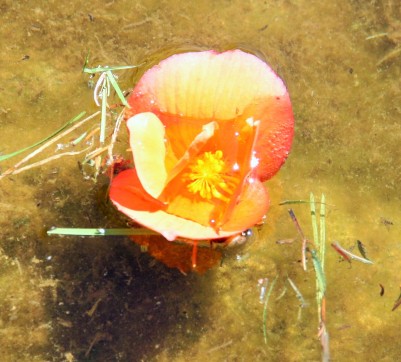
Wednesday Workshop
25 April 2018
Balancing the Books
Two days ago, I wrote the following lines to one of the writing groups of which I am a member.
“Today, 23 April 2018, is World Book Day. We not only celebrate the world of books, but also the death date of three great authors. Miguel de Cervantes, William Shakespeare, and the Inca Garcilasso de la Vega. Three great writers, two continents, two languages, three if you include the Quechua from which the Inca Garcilasso translated his Comentarios Reales. The Inca Garcilasso didn’t actually translate the Comentarios Reales, for the originals were part of an oral tradition in a culture that lacked handwriting. Hence they were never written down. His mother was an Incan Princess and his father a conquistador. His mother kept the Incan culture and memories alive and it was from the oral traditions of his family (one side of it) that the Comentarios Reales were born. It was recognized in its day as one of the greatest books to come from one of the first outstanding writers with indigenous roots. Hence his place on the pedestal alongside the other two greats. All three died on 23 April 1613, the same date, but not the same day. Two different calendars were present in Europe: the old Julian and the more modern Gregorian … same date, but thirteen days apart.”
I knew long ago that I did not have the strength and stamina to make a living as a professional writer. I knew too that I could not put my beloved and my family through the strain of maybe, or maybe not, surviving financially on a creative writer’s income. I wanted to be an artistic writer, a poet above all, art for art’s sake, not just a commercial writer, writing adverts for a living, or pandering to the lusts of the baying evening newspaper crowd.
In order to support and care for my family I had to make money and balance the books. Rather than writing full time, therefore, I chose a career in academia. My career as an academic led to 90 research articles, mainly in my specialized field of Golden Age Spanish Literature, 70 book reviews, the publication, in book form, of part of my doctoral thesis, and an online bibliography, prepared initially thanks to the loving care of my beloved, and now turned, thanks to the Harriet Irving Library at the University of New Brunswick, into a searchable data base.
In addition to my normal course load, I also committed to twenty-five years of unpaid, voluntary overload teaching. I did this in order to maintain a small, understaffed program in a tiny Maritime university. I also had a long-term coaching career (Rugby) at club, provincial, regional, and national levels, and a commitment, at various times, to various editorial positions in 14 local, regional, national and international journals. My creative writing career has understandably suffered because of this commitment to research, teaching, editing, and coaching. In spite of that, while researching and teaching full-time, I was still able, with the help of family and friends, to publish 10 poetry books, 11 poetry chapbooks, 12 short stories and 130 plus poems in 20 Canadian (and other) journals. There was very little money in any this, other than my salary as a tenured professor, and I know only too well that to have been a full time, creative writer and to have maintained a house and a family without recourse to a second career would have been impossible.
Now that I have retired from university teaching, I can finally engage full time in creative writing. In my part-time creative writing career, maintained while I worked in academia, I kept a journal and made sure I spent at least one hour a day writing creatively, even if I had to get up early to do so. This resulted in a couple of poetry books with small presses and later a series of self-published poetry books that doubled with various festivals and other writing sequences. My poetry books never sold well, and there is very little money in poetry anyway, so when I started self-publishing, I determined to give my books away to friends and well-wishers who were interested in what I was writing. In retirement, I discovered CreateSpace and I now have thirteen books up on Amazon and Kindle. However, I am a writer and an academic, not a salesman and a marketing manager. As a result, I haven’t marketed myself and no, I haven’t sold many books. Self-promotion does not appear to be my strong point.
Last year, as Canada reached it’s 150th birthday, a birthday that ignores the fact that the country has existed for much longer than 150 years and that our indigenous people have lived here for 10,000 years or more, without any spectacular celebrations, questions were asked to selected writers about our Canadian Culture. What do we love most about Canadian Culture, was one such question. I gave the following brief answer: “Canadian Culture allows a person like myself, born in Wales, and speaking English, French and Spanish, to live and write in Canada about Wales, England, France, Mexico, Spain, and my adopted homeland. However, the literary and cultural industry boasts of our international character while almost totally ignoring me and writers like me. Those who guard the gates of the literary world ignore the self-published (often referring to us as adherents to what they term the ‘vanity press’) and they constantly belittle and put down those who have not progressed in the ways that they, as literary gate-keepers, find acceptable.”
Do I care? Of course I care. That is why I am writing this and why I will continue to write. Will anyone read this and take any notice? I doubt it. Will anyone take any action as a result of this tiny pebble cast into a Great Canadian Lake? I really, really doubt it. I can see the shoulder shrugging now as the eye-brows raise themselves slightly and the reject piles beckon. Will literary Canada keep staring at its own belly button and congratulating itself on its wonderful cultural opportunities for self-expression in writing? I guess it will. Will things change for artists on the periphery, for struggling artists, for artists like myself who with great difficulty have fought throughout their lives to continue with their creative writing while balancing the family books? I doubt it very, very much indeed.
But I am here, as others are here. Together, we have a voice. I would like it to become a very powerful voice. This voice has long been side-lined by the literary establishment and the institutions. But we are many. And I too have a dream: it is that one day, we independent publishers, we self-publishers, will raise up our voices, and one day we will be heard.









